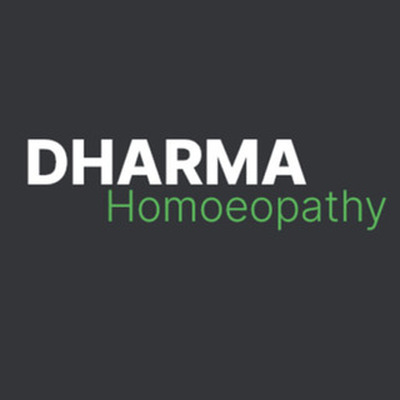More from Dharma Homoeopathy
More in Politics
Related Blogs
Archivo
compartir social
Homeopathy- A Natural Alternative to Conventional Medicine
Cuerpo
Alternative or complementary medicine is homeopathy. This indicates that there are significant distinctions between homeopathy and procedures used in traditional Western medicine. It is based on a set of concepts created in the 1790s by one German physician by the name of Samuel Hahnemann.
The idea that "like cures like"—that a drug that creates certain clinical signs can also aid in their eradication—is a fundamental tenet of the "treatment" process. A second fundamental idea is based on a dilution and shaking procedure known as succussion. According to experts, a substance's ability to relieve symptoms is increased the more it is diluted under this way.
Many homeopathic treatments are made up of ingredients that have been repeatedly diluted in water until nearly none of the original ingredient is left. Homeopathy is utilized to "cure" a very broad range of ailments, including physical ones like asthma and mental ones like depression.
- Homeopathy, also known as homeopathy, is a 200-year-old alternative medicine that makes the claim that it can improve the body's capacity for self-healing and elicit a healing response. Its practitioners assert that it represents a comprehensive medical approach built on the principle of treating "like with like." It makes the claim that by utilizing carefully formulated, very diluted treatments, it can activate the body's natural healing reaction to illness.
- Homeopaths claim that in addition to considering the patient's medical history, personality, lifestyle, and hereditary variables, they strive to cure the whole person. Homeopathic remedies are provided for specific patients because every person is different.
- The efficacy of homeopathy has not yet been validated by medical research. Homeopathic remedies are not a substitute for conventional medical care in the treatment of serious illnesses or infections, there is no such entity as a homeopathic vaccination.
- Homeopathy can be dangerous if an as such on it as a medical care and uses homeopathic medicines in place of conventional medical care when treating serious illnesses or infections. While homeopathic medicines are not in and of themselves harmful, homeopathy can be dangerous if a person does so.
Homeopathic medicine
A homeopath will take into account all of the patient's symptoms, whether they be physical, mental, or emotional, and will choose the remedy that can produce symptoms in a healthy individual that are the most "similar" to the ones the patient is experiencing. Homeopathic drugs come in a variety of forms, including liquid, granules, powder, and pills. A treatment plan from your doctor may also include general nutrition and lifestyle recommendations.
According to homeopaths, symptoms can occasionally briefly worsen before they improve. Homeopathy may be used to treat this "stress and frustration" of symptoms. If you experience any side effects, you should inform your homeopath and physician. If required, your homeopath may suggest that you see a doctor or another type of healthcare professional.
Homeopathy and conventional medicine
All medical procedures have the possibility of interacting with one another, whether they are performed using conventional or alternative methods.
- In order to ensure that you are not harming somebody, you should:
- If you intend to begin a homeopathic treatment regimen for your ailment, let your doctor know.
- Never discontinue taking conventional medications without your doctor's knowledge and consent.
- Inform your homeopath about the prescription medications you take.
When is it implemented?
Numerous medical conditions are treated with homeopathy. Many medical experts believe it can cure any disease. The following are a few of the most typical ailments for which individuals seek homeopathic treatment:
- Ear infections and asthma
- Hash fever
- Mental health issues include anxiety, stress, and depression Allergies, like food allergies
- Dermatitis (a severe allergic ailment)
- High blood pressure
- Arthritis
And other innumerable diseases
Creating homeopathic remedies
The process of "potentisation," or repeated dilution and shaking, is used to make homeopathic medications. According to homeopaths, this procedure makes the medicines capable of igniting the body's own healing processes. Homeopaths contend that even if there is no chemical evidence of the original material in the medication only after 12th dilution, it still possesses the same properties.
Evidence of homeopathy's benefits
The effectiveness of homeopathy has been the subject of numerous assessments of the scientific data:
The Hall of Commons Technology and Science Committee stated in 2010 that there is no proof that homeopathy works as a therapy for any illness. The assumption that specific substances can also assist treat particular symptoms is unsupported by any research. The notion that substances can become medicines by being diluted and shaken in water is also unsupported by any evidence.
- Homeopathy is based on theories that are not recognised by mainstream science and that contradict established truths about how the physical world functions.
- The "like heals like" premise is "theoretically weak," according to the Committee's 2010 study on homeopathy, which also stated that this is the "established position of medical science."
- For instance, many homeopathic treatments are diluted to the point that it's improbable that even one particle of the original ingredient is left in the finished product. Homeopathic treatments in situations like this are made entirely of water.
- Some homeopaths think that the original substance "imprints" itself on the water during the succussion procedure. However, the method by which this could happen is unknown.
- The 2010 report stated that it was "scientifically improbable" for compounds that had previously been dissolved in ultra-dilutions to retain their imprint.
- A phenomenon called the placebo effect may cause some homeopaths to experience an enhancement in their health.
- You might pass up other therapies that have been shown to be more beneficial if you decide on medical procedures that just have a placebo effect.













Comentarios